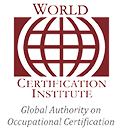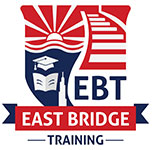Teaching in South Korea – Asian College of Teachers (ACT)
Teaching abroad is a life-changing experience for most educators out there. From exploring a
new country to indulging in a new culture and getting an opportunity to transform the lives of
so many kids, what is there not to love?
One such popular destination is South Korea. Nestled in the southern portion of the Korean
peninsula, South Korea is a mesmerizing country with miles of coastline, striking mountain
peaks, and vibrant Buddhist temples. Furthermore, the massively populated country is also
home to exciting delicacies and culturally rich cities. Thus, teaching in South Korea is a
thrilling and rewarding experience for expats.
Notably, the peak hiring seasons are during February and August for EPIK programs and
year-round for private institutions. An academic school year is normally from March to mid-
July and from August end to mid-February. Korea's vibrant cultural legacy comprises art,
literature, music, architecture, dance, clothing, and cuisine and offers a delightful
combination of modernity and tradition.
Apart from walking the bustling neon-lit streets of Seoul and taking part in cultural customs,
South Korea is a popular destination to teach for many reasons. It preserves a wealth of
priceless cultural heritage, the majority of which is inscribed on UNESCO’s World Heritage
List and is meant to be protected for future generations. Thus, if you are all ready to join the
craze of K-Drama, K-Pop, and K-beauty, you need a unique blend of qualifications,
credentials, finances, and a big heart to welcome the culture shock.
Become a Certified and Skilled Teacher
Updated Educational Requirements to Teach in South Korea
South Korea is keen on making its teachers feel loved. It is home to a solid traditional
educational culture, an uber-cool after-work culture, a stable economy, and technology that is
light years ahead of the rest of the world. Thus, if you want to teach legally in South Korea
and want to be a part of the teaching family, you must:
- Be a graduate from a recognized board or university with at least a bachelor’s degree
- Be a citizen of a native English-speaking country or have near-native proficiency for
ESL jobs
- Have completed 120 hours of TEFL course from a globally recognized institution (for
English teaching)
- Teaching license in English like B.Ed, M.Ed, or equivalent (Public institutions)
- Teaching experience preferred.
- Be under the age of 62
Even though South Korean use Korean as a language for local communications and is spoken
by 48 million people in the country, English is a medium of instruction in educational
institutions to ensure both local and foreign students are equally competitive.
Updated Visa Requirements for Teaching in South Korea
To teach in South Korea you need to apply for an E-2 work visa and the requirements can
vary from one Korean consulate to the other. The E-2 visa is a foreign language instructor
visa and is a legal document that proves that you are allowed to work as a teacher in South
Korea. It is generally valid for 2 years and is a multiple-entry visa that can also be renewed
every two years. Moreover, it is a mandatory requirement for all educational institutions and
is delivered by your nearest Korean consulate.
To be eligible for the work visa, you need
- To be a native speaker or must have studied English as a language from junior high
(7 th grade) or must have resided in a country for more than 10 years where English is
the primary language.
- A completed visa application form
- Notarized and apostilled university degree
- Sealed academic transcripts
- Notice of appointment and employment contract
- Criminal Background Check
- Health Check Statement
- Photocopy of your passport
- Signed employment contract
- 2 recommendation letters
South Korea is also planning to introduce a new type of visa in the year 2023 also known as
the workcation visa to attract foreign travelers and help revitalize the local tourism industry
that was hindered by the pandemic. The workcation visa also known as the digital nomad visa
is a combination of both work and vacation.
It refers to the 'bileisure' trend of working remotely during an extended stay in another
country. The visa will be valid for a year and the employees can keep performing their usual
tasks for a particular country from their native country. With this innovation, the government
is planning to lure 30 million inbound travelers and create revenue of three billion dollars by
2027.
Major Types of Educational Jobs in South Korea
Various types of educational facilities, schools, government-run programs, immersion
programs, and independent organizations are all a part of the competitive and lucrative
education system in South Korea.
Based on your location, experience, and education, you will be placed in one of the various
types of facilities like a kindergarten, a hagwon, a public school, a university, an after-school
program, or an adult English program. Each position contributes in a unique way to the ever-
expanding educational system even though they vary in hourly rates and salary.
There are four hiring seasons in South Korea and you should try and coordinate your
application within one of the following hiring periods for the best results:
- Spring Hiring Season- March
- Summer Hiring Season- June
- Fall Hiring Season-September
- Winter Hiring Season- December
Teach in South Korea- Public Schools
Public schools in South Korea are one of the most coveted due to their numerous benefits like
higher job security, paid vacation, furnished housing, one-way airfare, etc. While the teaching
positions vary from school to school and tend to be a little more competitive, gaining an
experience in a public school is an ideal teaching opportunity for most foreign expats.
The working hours are normally less than other hagwons and private schools and the basic
duration is 8:00 am-4:00 pm or 9:00 am-5:00 pm Monday-Friday. Additionally, you will be
working alongside a co-teacher creating lesson plans and also coordinating classroom
instruction times. Public schools normally hire six months prior to their start dates which are
usually around March and September. Moreover, most of them prefer enrolling teachers who
have applied through any one of the government-sponsored programs:
- EPIK- Stands for English Program in Korea organized by the Korean Ministry Of
Education to place teachers in elementary or middle schools all throughout South
Korea.
- GEPIK- This program is located in the Gyeonggi Province of South Korea and is for
aspirants looking for working in rural areas near Seoul.
- SMOE- Renamed as EPIK-Seoul paces teachers in Public schools throughout the
capital city, Seoul.
Applications for private schools are evaluated based on a list of criteria that is indicative of a
candidate's potential. To teach in public schools, competent candidates must have:
- A Bachelor’s degree or higher qualification in any subject
- Native English citizenship or near-native fluency
- Teaching license in English (For Indian candidates)
- At least 100 hours of TEFL/TESOL/CELTA certification (waived off if you have a
BA or MA in Education)
- 20+ hours of in-person teaching experience preferred (50+ teaching hours for teaching
English in Busan)
- A legal E-2 visa
- Medical check certificate
- No visible tattoos or piercing other than on the ears
Public schools typically have an average of 22-25 teaching hours per week and the rest of the
hours are reserved for lesson planning. If you are applying through any of the government-
sponsored programs you can also submit your teaching preferences. An entry-level public
school teacher without experience can earn around 2 million Korean Won per month and for
teachers with around 2-3 years of experience, it can raise up to 2.3 million Korean won per
month.
Teach in South Korea- Hagwons
Hagwons are considered to be the private language centers or academies of South Korea. The
term Hagwon in itself means ‘after school program’ and there are thousands of these schools
scattered across the country offering countless subjects to students of all ages. They are
distinct from the South Korean public school system and represent the majority of English
teaching jobs in the country owing to their easy application process, high pay, shorter work
hours, and pre-planned lesson plans.
There are several hagwons such as dance, foreign language, music, math, martial arts, sports,
and the list goes on and on. A Korean student typically attends more than one hagwon
throughout a week and spends around 6 hours a day.
Maximum of the foreign teachers in Korea work in Hagwons and the basic requirements of
an aspired candidate are:
- Bachelor’s degree or above in any subject from an accredited college or university
- Native English citizenship or near-native fluency
- Teaching license in English (For Indian candidates) from a reputed organization
- At least 100 hours of TEFL/TESOL/CELTA certification (waived off if you have a
BA or MA in Education)
- IELTS or TOPIK at least level 3 or 4
- 20+ hours of in-person teaching experience (preferred)
- A legal E-2 visa
- Medical check certificate
- A clean FBI criminal background check
A typical hagwon workweek is around 35 teaching hours and most hagwons have pre-
planned lesson plans for the teachers so that they can start their day a little later usually at
around 1 pm. If you are a beginner with A TEFL/TESOL certification you can earn around
2.4 million Korean Won per month and if you are an experienced candidate with 2 years or
above then you can expect to earn around 2.7 million Korean Won per month. They usually
hire year-round and typically through recruitment companies.
Teach in South Korea- Universities
Teaching in universities is considered to be the ultimate job in South Korea and it is one of
the most sought-after positions owing to its fewer working hours and more vacation time than
public or private schools. University jobs in South Korea are of two types: Unigwon and
regular teaching jobs. Unigwons are basically university-run private English institutions or
hagwons and you will teach age groups from primary school kids to adults. In a regular
university, you will be teaching adults.
You can either teach credit or non-credit courses in universities and the basic requirements to
teach in South Korean universities include:
- Master’s degree or Doctorate in any subject from an accredited college or university
- Native English citizenship or near-native fluency
- Teaching license in English (For Indian candidates) from a reputed organization
- At least 100 hours of TEFL/TESOL/CELTA certification (waived off if you have a
BA or MA in Education)
- 2 years of teaching experience if you have a master's degree and 4 years of teaching
experience if you do not have a master's degree.
- A legal E-2 visa
- Medical check certificate
- A clean FBI criminal background check
The teaching hours for universities are usually around 10-20 per week out of which you
might have to keep 3-4 office hours per day for student counseling and paperwork. Salaries
for university positions vary as per the hours you put in. However, the basic pay for beginners
is around 1.8-2.8 million won per month and for experienced professionals, you can earn
around 3.7 million won per month. Depending on your location you can also earn a housing
allowance of around 3-4 million won per month as it is not always provided.
Teach in South Korea- Adult English Language Academies
The adult English Language Academies offer business, travel, or adult English classes with
their own facility. The format of these programs varies greatly from institution to institution
and teachers typically facilitate classes during times that accommodate the student's lifestyle
or work schedule like after work hours, early morning hours, or lunch hours.
The teaching position for such academies involves working early morning hours followed by
a long break and again resuming work in the evening. If this type of job intrigues you, then
you must have the following:
- Bachelor’s degree or above in any subject from an accredited college or university
- Native English citizenship or near-native fluency
- At least 100 hours of TEFL/TESOL/CELTA certification
- IELTS or TOPIK at least level 3 or 4
- 6+ hours of in-person teaching experience (preferred)
- A legal E-2 visa
- Medical check certificate
- A clean FBI criminal background check
Working with adults with fewer, intermittent hours are always advantageous for a teacher
willing to work and enjoy their vacation in Korea. It offers typical benefits like two-ways
airfare, health insurance, paid national holidays and 10 days paid vacation, severance pay,
and housing allowance. The salary varies as per the number of hours you put but it typically
ranges from around 1.9-2.4 million won every month.
Teach in South Korea- After-School Programs
The after-school programs are like private tutoring academies where students usually attend
classes after attending their elementary, middle, public, or private schools. The schedules and
format of the classes vary from institution to institution depending on the programs they
offer. The typical working hours of these programs are a little bizarre and it operates from
around 1 pm-9 pm, 3 pm-10 pm, and 4 pm-12 pm respectively. English teachers working in
adult hagwons mostly opt for teaching positions in these institutions.
Elementary and middle school students make up the majority of learners in these programs
and the teaching requirements are similar to the adult hagwons. These include:
- Bachelor’s degree or above in any subject from an accredited college or university
- Native English citizenship or near-native fluency
- At least 100 hours of TEFL/TESOL/CELTA certification
- IELTS or TOPIK at least level 3 or 4
- 6+ hours of in-person teaching experience (preferred)
- Medical check certificate
- A clean FBI criminal background check
There is a slight difference in the visa requirements as teachers with E-2 visas cannot teach
private lessons as it is considered illegal. However, if you want to legally teach private
English lessons in South Korea then you need to have an F2-1, F-5, or D-2 visa. It is highly
recommended to speak to your employer before engaging in any opportunity of this sort. You
will normally take 5-10 classes a week for about 45 minutes-3 hours and depending on the
number of classes you take you can expect to earn around 1 million to 3 million Korean won
per month.
Land a Teaching Job in South Korea
South Korea is becoming increasingly popular for expats to stay long-term even if the
competition for jobs continues to increase. However, it might be difficult to break into the
South Korean job market if you do not have the proper credentials and qualifications.
Regardless of the obstacles, a variety of educational jobs exist in South Korea for dedicated
educators. You can work as:
Curriculum/course developer
- Training Coordinator
- Corporate Instructor
- Educational consultant
- Language professor
- Child care center director
- Learning Specialist
- Senior program coordinator
- Curriculum leader
If you want to land a job in South Korea, here are some hot tips for a seamless job-seeking
experience:
- Take refuge in one of the most popular websites like Job Korea, Saramin, Global
Korea Center, People N Job, Craiglist, etc.
- If you are focused to become a TEFL teacher then you can look for dedicated ESL-
based sites like CIEE, Dave's ESL Cafe, Gone2kOrea, Krovia, Hands Korea, Work N
Play, etc.
- Get at least a 120-hour TEFL certification if you have not already polished your
resume.
You can also find vacancies in English-language newspapers like The Korea Times, The
Seoul Times, etc if you could manage the initial expenses of moving to Korea then
considering jobs through newspaper listings are the safest option as they offer you an
opportunity of attending walk-in-interviews if already present in the country.
Cost of Living in South Korea
The cost of living in South Korea is generally on the affordable side and is generally lower
than in the United States. However, if you are living in big cities like Seoul or Busan, living
costs might rise significantly as Seoul is considered to be one of the most expensive cities in
South Korea. Moreover, most teaching jobs cover your housing expenses, it is safe to say that
the maximum amount of your paycheck will be utilities, traveling, and cell phone bills.
The most enticing part of your teaching contract, however, is the fact that after the
completion of your contract, you can an extra month's payment as a bonus. So, this basically
means that the last time you get paid, you actually get paid twice.
Depending on the number of hours you want to work and how frugal you are with money,
here is a basic rundown of the expenses for foreign nationals living in South Korea:
- Food: $80-$100 depending on how much you spend on groceries or eating out.
- Transportation: A monthly transportation pass for public means is around $43.28
- Entertainment: De expenses for foreign nationals living in the
- Philippines: Depending on how much you spend on movies, clubs, or bars it ranges
from 468-$80
- Housing- Starting from $810 for a one-bedroom apartment in the main cities (if not
included in your contract), $350-$650 for a studio apartment in less popular cities
Major Perks of Teaching in South Korea
South Korean Labour laws dictate that employers must provide teachers with 50% pension
contributions, health insurance, and severance pay. Other than that some of the basic benefits
of working as a teacher in South Korea include:
- Housing allowance
- Flight reimbursement
- Contract renewal bonus
- Paid vacation
- Contract completion bonus
- One-year visa sponsorship
- Low tax rate
Popular Places to Teach English in South Korea
Foreign nationals must come up with the idea of landing a job in South Korea's fashion
capital, Seoul. But the placements here can be highly competitive and there are several other
fascinating places to explore. Every corner of the “Land of Morning Calm” has a special
spirit and therefore, there are numerous options that might be convenient for you to satisfy
your desire to get the taste of a new life.
Here are the best cities to teach English in South Korea:
Seoul
If you are looking for a fast-paced lifestyle, this is just the place for you. The city
accommodates 9.7 million people and is sprawling with bustling roads and skyscraper
buildings. Considered to be a megacity finding job in a public might put you in a tough spot.
But home to numerous hagwons, language centers, and academics you can find yourself
fitting into one.
Busan
The second largest city after Seoul and home to almost 3.4 million people Busan is another
popular destination for foreign expats. With competitive pay, pristine beaches, and inspiring
shrines, Busan offers all types of teaching positions including public and private.
Daegu
If you are fancying small-city charm then Daegu is just the city for you. Housing 2.4 million
people and known for its vibrant nightlife, you can consider teaching in Daegu MOE with a
TEFL certification. Apart from this, there are several adult academies, hagwons, and
universities available for you to teach.
Suwon
Best known for its suburban life, Sowon a province of Gyeonggi-do is considered to be a big
chill. Located on the outskirts of Seoul, the city is brimming with teaching opportunities in
both public and private schools minus the ultra-competition.
Incheon
A great province for history lovers, Incheon is the fourth biggest city in South Korea.
Teaching opportunities in this area are growing to be competitive and if you have your
TEFL/TESOL certificate, you can easily land a job in the public schools. If not, there are
several hagwons, language centers, and school program providers willing to hire worthy
expats.
Gwangju
If you are looking for cultural immersion, Gwangju tops the list. Smaller than the other cities,
Gwangju has a lively English-speaking environment, waiting to welcome foreign nationals
with open arms. Through EPIK, you can reach out to the public schools or can also try
through a recruiter to secure a college or university-level job.
Jeju City
Known as Korea’s ‘it’ spot, Jeju city also known as Jeju Island is popular for its expansive
beaches and UNESCO World Heritage sites. Even though the island is secluded from the rest
of South Korea, teaching jobs here are plentiful. If you apply during the peak hiring season,
you can easily land a job in public schools or private academy jobs.
Teach and Live in South Korea
South Korea houses approximately 51 million people and the country is about half the size of
Colorado. Considered to be the technological leader, the nation has one of the fastest internet
connections in the world. The blend of fast internet ad convenient transportation makes life
so much easier and you can get food delivered to you at any point in time and at any place
that you might be.
On top of that South Korea boasts its natural beauty with numerous attractions such as
beaches, temples, museums, and of course, Namsan tower will blow your mind away. Culture
shock, however, is a real thing in Korea as people mostly speak Korean and you must have a
basic understanding of ‘Hangul’ (Korean written dialect) as most of the signs would be
written in that dialect.
The country is home to one of the most homogeneous populations in the world where the
religion is divided into Buddhism and Christianity. So having a basic understanding of
religious norms will avoid you from getting into trouble. South Koreans normally have a
warm personality and there are some basic societal norms like bowing while greeting,
removing your shoes before entering someone's house, and drinking while looking away if
you are accompanied by someone older than you are considered as gestures of respect.
Overall, South Korea offers a unique and rich culture where you can make plenty of friends
and enjoy memorable experiences.























